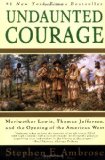Books: "Sometimes a Great Notion" by Ken Kesey
May 24, 2007
(Editor’s note: I’m behind on my book blogs)
I read this book for my book club.
First of all, let me admit that this book is better than me. Every page was like a drawn out boxing match by the end of which I was spraying blood-flecked literary saliva. Brutal is a modifier that comes to mind, in subject matter and in difficulty. I finished this book over a week ago and I’m still trying to decide: whether I liked it, whether I feel like it touched my innate Oregonian-ness, and whether I understood what the hell happened within it.
I can’t really say anything bad about it. It has the hallmarks of a Real Classic-Like Book, with themes and symbolism and complexity. It spurred the longest on-topic, actual-book-related conversation my book club has ever had (we even neglected to drink all of the wine because I think we were distracted with the topic at hand).
What’s so damned hard, you might ask. After all, it was written within the last century about places I know well by an author I’ve read before. Let me count the ways:
1) Most importantly, a constant switch between voices. Effectively every major character in the story (bar one I can think of) takes a turn in the first-person. And there is no indication when these switch. Mid-chaper, mid-paragraph, mid-sentence, take your pick.
2) Sheer length. Something like 650 pages, and the type is dense.
3) Streams of consciousness to beat the band.
4) Temporal disparity. One moment it’s 1961, another, 1898.
5) Scenes are rendered in such personal, internal monologue-ish ways that sometimes it’s impossible to tell what’s actually going on.
All in all, though, I think it’s very important that I read this book. It makes me realize how the late Mr. Kesey and I have a similar understanding of the beauty and not beauties of the wet coastal world of Oregon, and it had fabulous characters (with the exception of all female characters except the main female character).
Rating: ***1/2 (out of 5)
I would have given it four, for quality’s sake, but it was so damned hard that it chipped away at the enjoyability factor.
Recently Reviewed
Get the Books
Read my Reviews
Related Posts
- Books: The Remains of the Day, Kazuo Ishiguro
December 14, 2006 - The Master Butchers Singing Club: A Novel (Erdrich, Louise) by Louise Erdrich
November 8, 2007 - Madeleine D'Engle, "A Wrinkle in Time"
May 1, 2007 - House of Sand and Fog (Oprah's Book Club) by Andre Dubus III
October 2, 2007 - Books: Tuesday Thingers: Most Popular Book?
June 17, 2008



